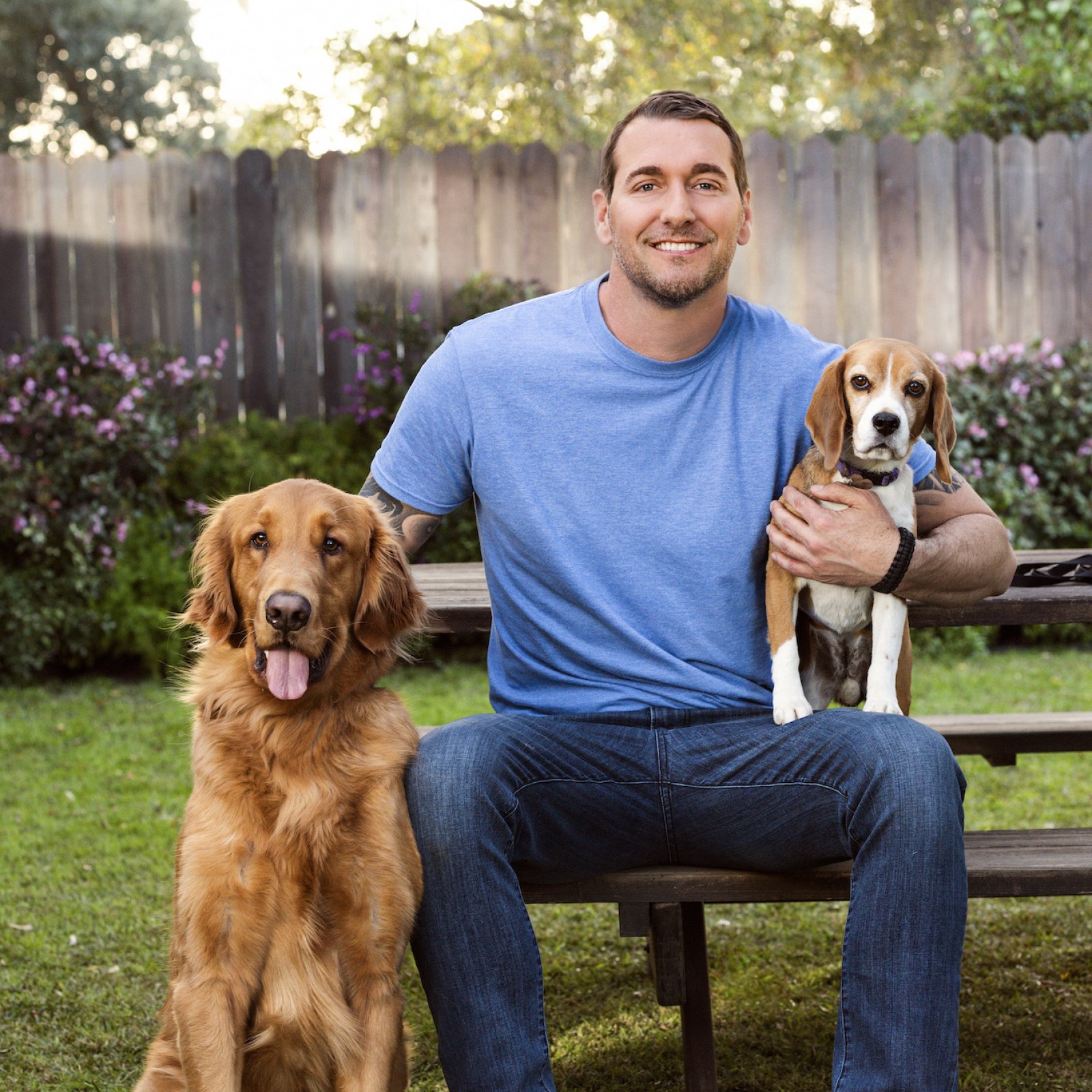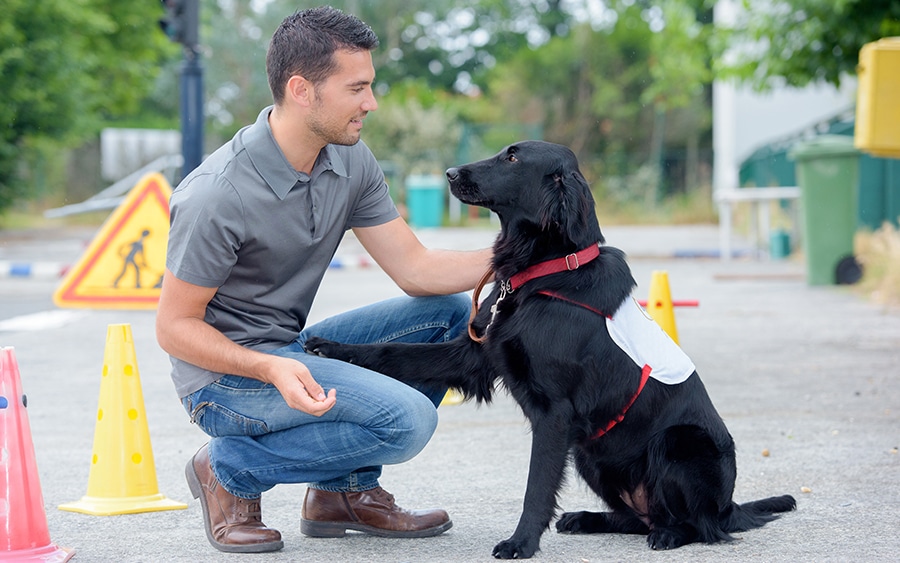Unlock Your Pet dog's Possible: Proven Dog Training Strategies for Success
Efficient canine training is a nuanced procedure that depends upon comprehending canine habits and using clinically backed approaches. dog training charlotte. By including positive support, establishing clear commands, and focusing on socializing, pet dog owners can cultivate an effective relationship with their pets. Challenges usually occur that need customized options and a client strategy. Discovering these shown approaches reveals not just the possibility for behavioral enhancement however likewise the deeper bond that can be formed between proprietor and canine. What necessary strategies must be thought about to really unlock your canine's capacity?
Recognizing Dog Habits
Recognizing canine behavior is necessary for efficient training and fostering a favorable relationship in between pet dogs and their proprietors. A thorough grasp of canine body language, articulations, and social communications is important for recognizing their requirements and emotions. Dogs communicate primarily with non-verbal hints; for instance, a wagging tail may show enjoyment, while pinned ears can indicate anxiety or entry.

Moreover, environmental aspects play a significant function fit a pet's actions. Modifications in routine, new environments, or the presence of strange individuals can result in stress or stress and anxiety in dogs. Identifying these triggers allows proprietors to reduce damaging responses and create ideal training techniques.
Eventually, a deep understanding of pet dog behavior lays the foundation for successful training methods, enhancing both behavior and the general bond between the canine and its proprietor. dog training near me. This expertise is crucial for promoting a well-adjusted, pleased canine companion
Positive Reinforcement Strategies
Efficient training depends greatly on favorable reinforcement strategies, which have been shown to generate significant outcomes in shaping preferred habits in canines. This technique entails compensating a dog for exhibiting specific habits, therefore enhancing the possibility that these behaviors will be duplicated. Rewards can take numerous types, including deals with, praise, toys, or playtime, relying on what encourages the private pet dog.

It is important to progressively phase out incentives as the pet finds out the behavior, transitioning to periodic reinforcement. This technique preserves the actions gradually while preventing reliance on consistent rewards. By concentrating on positive reinforcement, instructors can cultivate a relying on connection with their dogs, advertising a healthy and balanced and cooperative training atmosphere that enhances overall obedience and efficiency.
Developing Consistent Commands
A fundamental aspect of successful pet dog training is the facility of constant commands. Uniformity in dog litter box training commands is important for reliable interaction in between the trainer and the pet dog. When commands are uniform, pet dogs discover to link certain words with preferred actions, which speeds up the training process and enhances understanding.
To establish consistent commands, it is necessary that all member of the family use the very same terms and gestures. For instance, if one person makes use of "rest" while one more says "rest down," it can create complication for the pet. Select clear, distinct words for commands and ensure every person associated with the canine's training follows these choices.
Additionally, repeating is vital. Reinforce commands with constant technique, guaranteeing that the pet dog gets ample possibilities to respond properly. When a pet dog effectively follows a command, prompt positive reinforcement ought to comply with. This can be in the type of deals with, praise, or play, strengthening the connection in between the command and the action.
Last but not least, hold your horses. Developing constant commands takes some time and effort. With dedication and clarity, you will aid your pet dog develop a solid understanding of expectations, eventually leading to a mannerly companion.
Socialization and Exposure
Interacting socially a canine is important for cultivating a confident and well-adjusted friend. This procedure includes revealing your canine to a range of environments, individuals, and various other animals to establish their social skills and adaptability. Early socializing, ideally in between the ages of three to fourteen weeks, is important, as it prepares for a pet's future behavior.
Throughout socialization, objective to provide positive experiences in different settings, such as parks, hectic streets, and homes with various other pet dogs. Present your dog to various stimuli, including audios, views, and scents, ensuring that each experience is fulfilling. This exposure assists reduce fear and anxiety, leading the means for a much more check my site resistant dog.
Engaging in controlled team play sessions with other dogs can additionally boost social skills, showing your pet appropriate interactions and borders. Prioritizing socialization will substantially add to your dog's general joy and habits throughout their life.
Conquering Common Educating Difficulties

An additional regular problem is diversion. Pets may have a hard time to concentrate in unknown or hectic settings. Progressively desensitize your pet to distractions by starting training in a quiet setting and gradually presenting more stimulations as they come to be skilled (dog training charlotte). Positive reinforcement strategies, such as treats and praise, can preserve motivation and emphasis.
Additionally, behavior concerns like leaping or excessive barking can end up being discouraging. Address these by showing alternative behaviors, such as sitting calmly when welcoming visitors. Consistency and persistence are vital; enhance wanted habits consistently and avoid scolding, which can result in complication.
Last but not least, acknowledge that each dog is unique, and training timelines may vary. Dressmaker your strategy to your pet's individual requirements, and seek expert support if needed. With perseverance and the appropriate approaches, getting over these difficulties can result in a trained, happy canine companion.
Final Thought
Finally, opening a dog's possible necessitates a detailed method that incorporates an understanding of canine behavior, the application of favorable reinforcement techniques, and the establishment of constant commands. Early socializing and exposure to diverse environments even more improve a dog's versatility and self-confidence. By cat tricks to teach addressing typical training difficulties with customized methods and persistence, a cooperative and harmonious relationship in between dog and trainer can be promoted, ultimately causing a well-behaved friend with the ability of flourishing in different situations.
Efficient canine training is a nuanced process that hinges on recognizing canine habits and using clinically backed approaches.Understanding dog habits is essential for effective training and promoting a favorable connection in between pet dogs and their proprietors.Effective training relies greatly on favorable reinforcement strategies, which have actually been shown to generate considerable results in shaping preferred habits in pet dogs. When commands are consistent, dogs learn to connect particular words with desired habits, which speeds up the training process and boosts understanding.
In conclusion, unlocking a pet's possible demands an extensive technique that integrates an understanding of canine behavior, the application of positive reinforcement techniques, and the facility of constant commands.